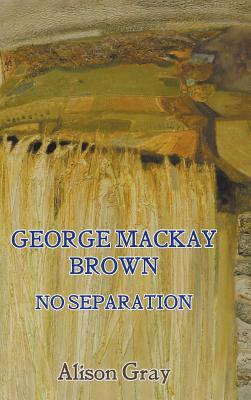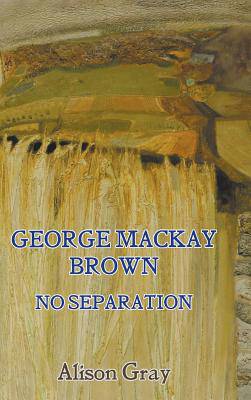
- Afhalen na 1 uur in een winkel met voorraad
- Gratis thuislevering in België vanaf € 30
- Ruim aanbod met 7 miljoen producten
- Afhalen na 1 uur in een winkel met voorraad
- Gratis thuislevering in België vanaf € 30
- Ruim aanbod met 7 miljoen producten
Zoeken
Omschrijving
George Mackay Brown, the poet, novelist and dramatist, is seen by some as not just Orkney's, but Britain's best twentieth-century poet - widely praised by Ted Hughes, Seamus Heaney and fellow Orcadian mentor Edwin Muir. Many of his works are concerned with protecting Orkney's cultural heritage from the relentless march of progress and the loss of myth and archaic ritual in the modern world, a concern further influenced by his own conversion to Catholicism. Alison Gray has written No Separation first and foremost as a faith story, opening up the Catholicism of George Mackay Brown that hitherto has remained quiet, unexplored and not greatly understood. Not a Catholic or religious writer as such, but treating all the subjects of literature as a Catholic would treat them, and only could treat them. She places Mackay Brown's writings within an Orkney poetics, a shared Orcadian patrimony that is in touch with its own great past whilst simultaneously being deeply connected to the currents of theology and modern intellectual life in the twentieth century and beyond.
Specificaties
Betrokkenen
- Auteur(s):
- Uitgeverij:
Inhoud
- Aantal bladzijden:
- 232
- Taal:
- Engels
Eigenschappen
- Productcode (EAN):
- 9781781820407
- Verschijningsdatum:
- 9/03/2016
- Uitvoering:
- Hardcover
- Formaat:
- Genaaid
- Afmetingen:
- 152 mm x 229 mm
- Gewicht:
- 512 g

Alleen bij Standaard Boekhandel
+ 94 punten op je klantenkaart van Standaard Boekhandel
Beoordelingen
We publiceren alleen reviews die voldoen aan de voorwaarden voor reviews. Bekijk onze voorwaarden voor reviews.








